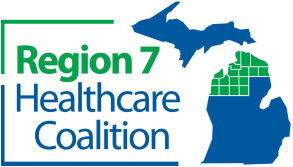|
ASPR Technical Resources, Assistance Center, and Information Exchange (TRACIE) Resource Spotlight: Managing Patient Surge in Rural Areas, Experiences from Gallup Indian Medical Center
In many rural areas, patient transfer is a common practice, though often strained by various factors. For this article, ASPR TRACIE met with Dr. Emily Bartlett, an emergency medicine physician who has worked at the Gallup Indian Medical Center in New Mexico (GIMC) since 2020 to learn more about how the center determined which patients to transport and which to treat in place as they overcame related challenges. She was joined by Brandon Wyaco, Public Information Officer from the Navajo Area Indian Health Service.
0 Comments
ASPR Support for East Palestine, Ohio One Year After Train Derailment
ASPR developed detailed recommendations on strategies to address the behavioral health impact of the derailment on the East Palestine community and provided these written recommendations to the Responsible Party at the request of FEMA. In December 2023, disaster behavioral health and disaster recovery SME’s from ASPR’s Office of Response met with the FEMA’s Federal Coordinator and representatives of the Responsible Party to brief on the recommendations, which are evidence-informed based on the current state of science about the effects of technological disasters on population behavioral health and are actionable but require funding from the Responsible Party. Read the full press release from the White House for additional actions taken from the entire federal government. Hospital Mass Casualty Response Plan Considerations The term “mass casualty incident” (MCI) refers to the combination of patients and care requirements that require mobilization of additional resources to meet the demand. MCIs generally occur without warning and a concise plan is needed to ensure rapid and efficient response. Hospital Mass Casualty Response Plan Considerations can assist hospitals in developing a new—or vetting an existing—MCI plan. Disaster Behavioral Health: Resources at Your Fingertips (Updated) When disasters strike, the ripple effects can be significant. Incorporating disaster behavioral health (DBH) into all phases of emergency management can ensure resident and responder preparedness, an effective, compassionate response effort, and a more resilient community moving forward. ASPR TRACIE recently updated Disaster Behavioral Health: Resources at Your Fingertips to provide information on and links to select DBH programs and resources that can be of immediate use to emergency health care providers, emergency management stakeholders, and other professionals and survivors affected by naturally occurring or human-caused incidents. The Evolution of Patient Load Balancing: The Southwest Texas Regional Advisory Council Regional patient load balancing is an art and science that has evolved across the U.S., particularly over the past few years. In The Evolution of Patient Load Balancing, ASPR TRACIE interviewed Eric Epley of the Southwest Texas Regional Advisory Council—who was the Council’s first official hire in 1998 and currently serves as the executive director/chief executive officer—to learn how the Council has evolved and promising practices in load balancing and other trauma-related efforts. Access Issue 18 of The Exchange for more articles on innovations in health care surge management. Register Today: AHEPP’s Annual Conference Registration for the Association of Healthcare Emergency Preparedness Professionals’ 2024 Annual Conference ends February 25. Register today and visit the ASPR TRACIE Team at our booth! We will also be highlighting our On-Campus Healthcare Facility Armed Assailant Planning Considerations document during a two-hour workshop on February 28, from 2:40-4:30 PM. Project ECHO Clinical Readiness Rounds ASPR and Project ECHO have launched HHS/ASPR Project ECHO Clinical Readiness Rounds to create peer-to-peer learning networks where clinicians who have more experience treating patients in emergency situations share their challenges and successes with clinicians across the U.S. and around the world with a wide variety of experience of these situations. Topics for sessions are based on new and emergent information around emergency preparedness and topics requested by participants. Please contact [email protected] for more information. Updates from the Office of Critical Infrastructure Protection ASPR’s Office of Critical Infrastructure Protection (CIP) offers a variety of newsletters to keep stakeholders informed during emergency response and steady state. The newsletters inform stakeholders of the most significant issues facing the health care and public health sector, including cybersecurity, health care supply chains, and more. If you are interested in receiving CIP newsletters, visit the CIP newsletter subscription webpage. |
AuthorWrite something about yourself. No need to be fancy, just an overview. Archives
July 2024
Categories |
To activate the Region 7
Medical Coordination Center call:
Gaylord Regional
Communication Center
1-989-732-5141
During your call, include the following information:
- Your name and contact number.
- Your agency or hospital.
- The reason for requesting the resource.
- Exact location to where you need the resource delivered.
- Who will accept and sign for the resource.
Medical Coordination Center call:
Gaylord Regional
Communication Center
1-989-732-5141
During your call, include the following information:
- Your name and contact number.
- Your agency or hospital.
- The reason for requesting the resource.
- Exact location to where you need the resource delivered.
- Who will accept and sign for the resource.
Site Map |
Organization |
Copyright © 2014 | 2464 Silver Fox Trail Suite A, Gaylord MI 49735 | 989.748.4975
|
 RSS Feed
RSS Feed
